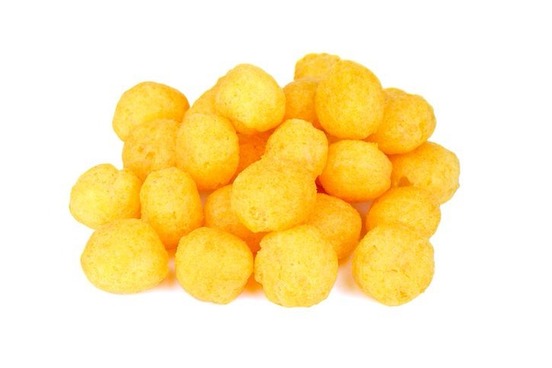
Cheese-eater
Definition - informer, stool pigeon, rat
The earliest uses of cheese-eater were boringly literal, referring to an eater of cheese. Occasionally we find the word used in a figurative manner, as in a 1653 translation of Rabelais' Gargantua and Pantagruel:
But in that he chargeth the Defendant, that he was a botcher, cheese-eater, and trimmer of mans flesh imbalmed, which in the arsiversie swagfall tumble was not found true, as by the Defendant was very well discussed.
The anonymously written The History of the Republick of Holland (1705) avers that the Old Hollanders (who were, according to the author, "despised by their Neighbours, by reason of their Boorish Manners") were called cheese eaters, as well as milk-sops and butter boxes, but we have little additional lexical evidence to support this contention.
The sense of cheese-eater we are concerned with appears to have originated in the United States in the first half of the 20th century.
Ross charged that the "cheese eaters" were usually harassed, threatened and beaten up on the "Q.T." after they ran to the Chinese guards with tales.
— Courier (Pittsburgh, PA), 15 Aug. 1953

Cheeseball
Definition - inferior in quality; cheap, cheesy
Much like cheese-eater, cheeseball has a considerably longer history of use in a literal fashion than it does in a figurative one, beginning in the 19th century to be used to refer to a ball of cheese (such as mozzarella). The adjectival use of cheeseball to indicate that something is cheesy is fairly recent, with written evidence dating only as far back as the 1980s. Both cheeseball and cheesiness come from the habit of using cheesy to designate things as shabby or second-rate, which we have been doing for well over a hundred years.
So, to the filmmakers, it's probably best to say: "Enjoy the money you'll make from audiences that love cheeseball comedies, and better luck next time."
— Robert Denerstein, The Daily Journal (Franklin, IN), 29 Jun. 1988

Cheesecake
Definition - a photographic display of shapely and scantily clothed female figures —often used attributively
It is unclear why suggestive photos of both men and women should be given words ending in -cake, but each gender has their own term. Beginning in the 1920s suggestive photos of women have been referred to as cheesecake.
The Broadway chorine, imported to Hollywood for permanent use in First National Vitaphone Pictures, followed the lead of "Cheesecake" Betty, a turbulent, high-kicking blonde!
— Battle Creek Enquirer, (Battle Creek, MN), 6 Nov. 1929
The corresponding term for men, which began two decades or so later, is beefcake ("a usually photographic display of muscular male physiques; also, a man of the type featured in such a display or such men in general").
Alan Ladd, the original beefcake boy, growled when photos of his chest were used to publicize a movie in which he wore clothes.
— Daily Boston Globe (1 Dec. 1949)

Nipcheese
Definition - miser
The English language has had plenty of words for "miser" over the years. Many of these combine two existing (and uncomplimentary) words to make a new word for a cheapskate which has a certain zing to it. Thus we have ended up with words such as dryfist, flayflint, muckworm, and skinflint. Before nipcheese was employed as a term for a miser it was used to refer to a ship's purser.
Five bad Things on Board a Ship. A Kent-street Captain; a Hurricane Boatswain; a Horse Doctor; a Nip Cheese Steward; and a greedy nasty Cook.
— The Five Strange Wonders of the World

The Big Cheese
Definition - a most powerful or important person
Take care that you do not confuse the big cheese with butter-and-egg man, although both are dairy-based and informal terms for important people, and each originated in the 1920s. A butter and egg man is defined as "a free spender or wealthy investor; a naive prosperous businessman."
Somehow when a fellow gets a few drinks aboard he is possessed with a desire to burn up the road. He is the big cheese, in his own estimation, and other people are too insignificant to bother about.
—The Ada Weekly (Ada, OK), 17 Dec. 1925

Cheeseparing
Definition - something worthless or insignificant miserly economizing
Cheeseparing has a pair of meanings, neither of which is particularly pleasant. In addition to its sense of "something insignificant" the word is used in the sense of "miserly economizing." It joins chopped liver and small beer in the category of 'gastronomic terms for things of little importance.' Similarly, a cheeseparer is "a parsimonious person, a skinflint."
Must we carry away your Cheese-parings? Thrust your Bodkins forth!
— William D'Avenant, the Tragedy of Albouine, 1629

Cheese It!
Definition - used in the imperative as a warning of danger
There are a handful of theories for why cheese it has been used to imperatively warn of danger, particularly when it is referring to the police ("cheese it, the cops!") Among these are that it is a variant of "cease it," that the phrase is a euphemism for Jesus, and a number of other increasingly improbable origins. None of these theories have been unanimously accepted by etymologists. The phrase was more common in the 19th century than it is today, and appears to have been in use since at least 1810.
There was a gleam of dark lanterns among the broken arches. "Cheese it, the cops," shouted a boy in the gallery, and on they came.
— The New York Tribune, 27 Jan. 1883





